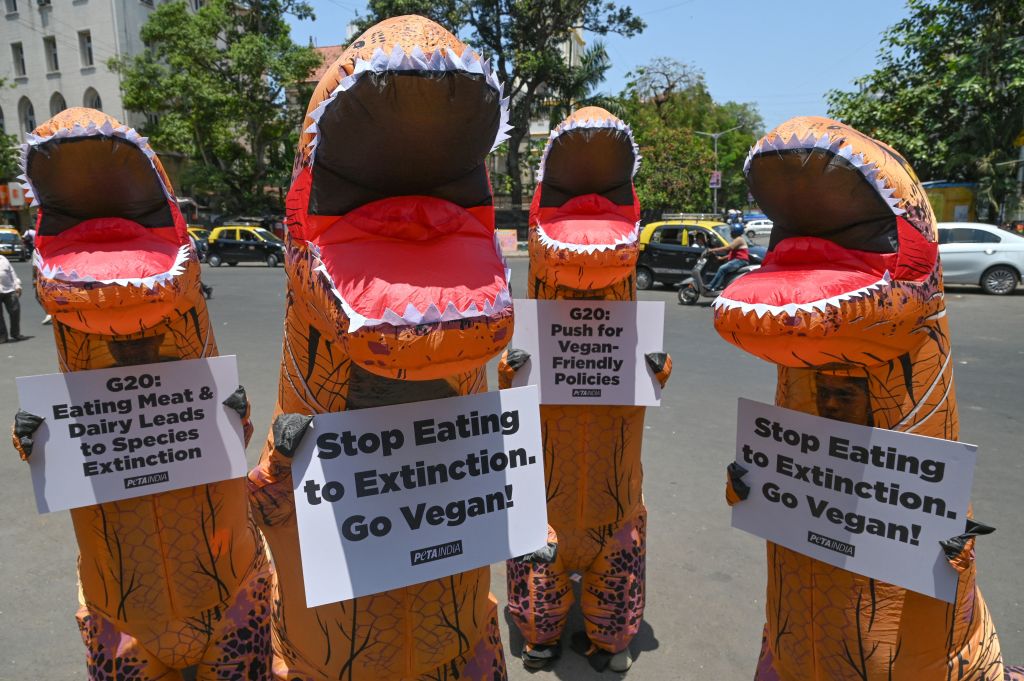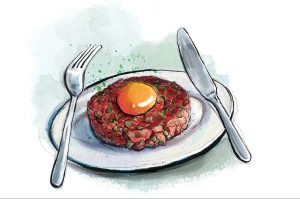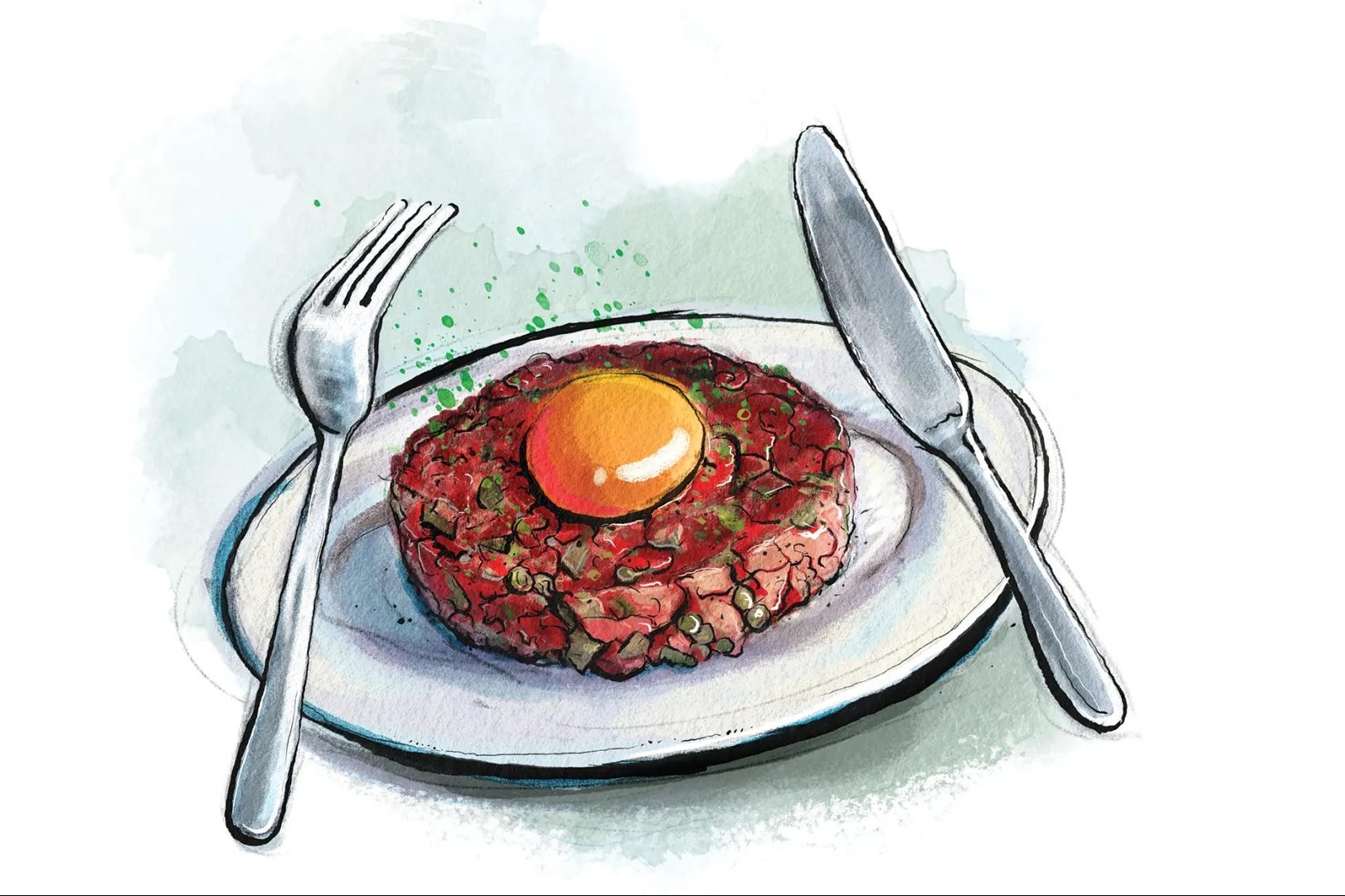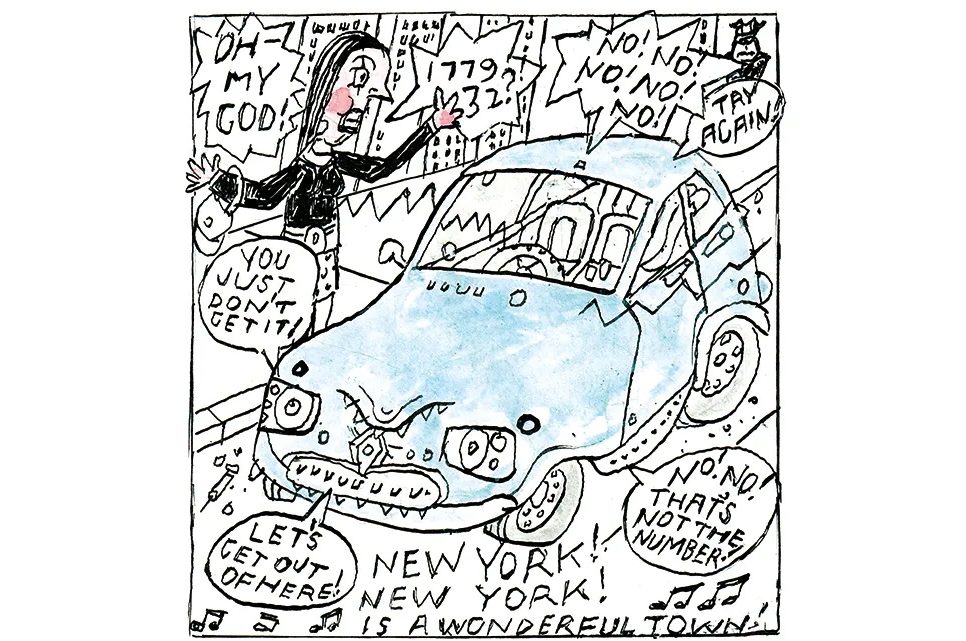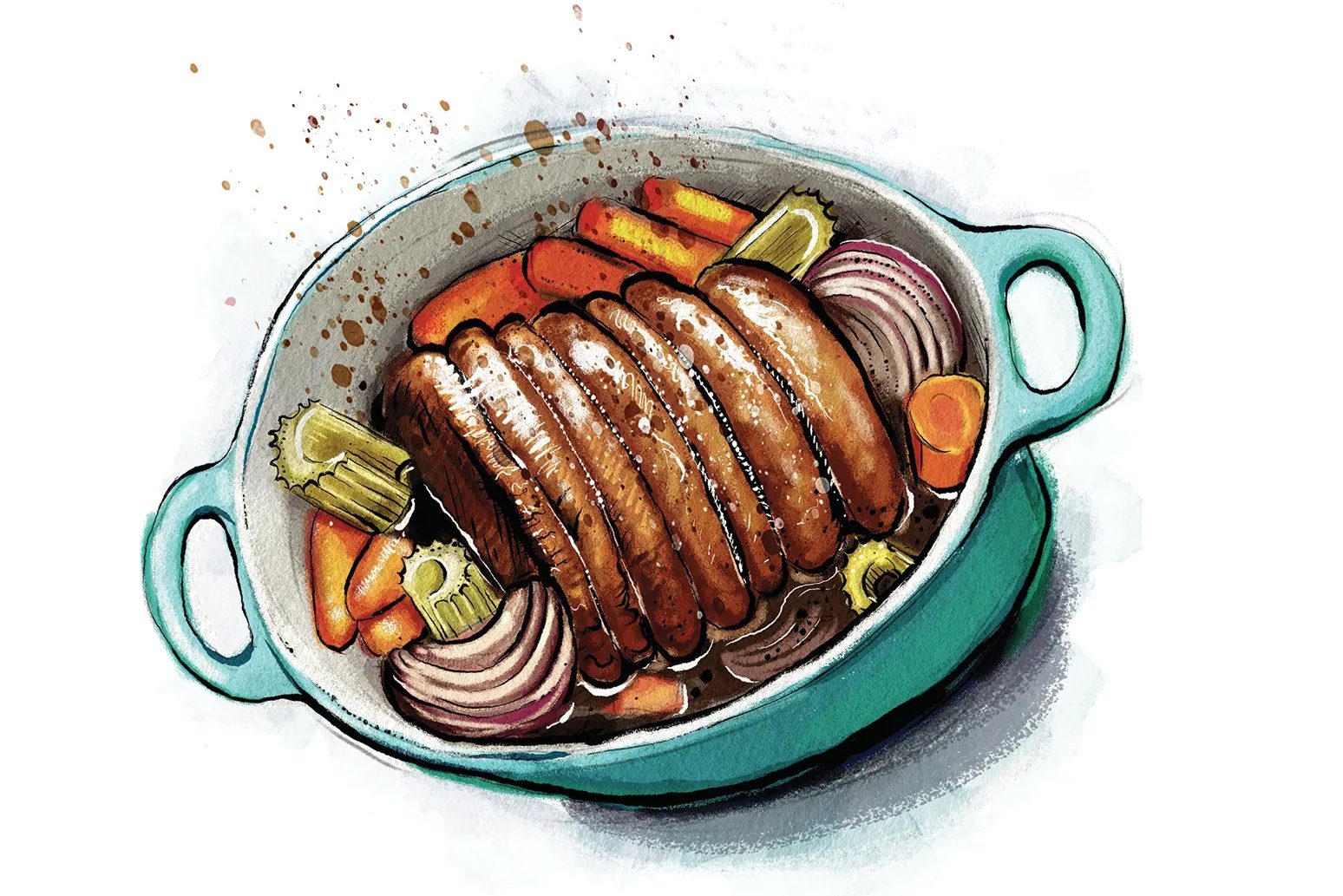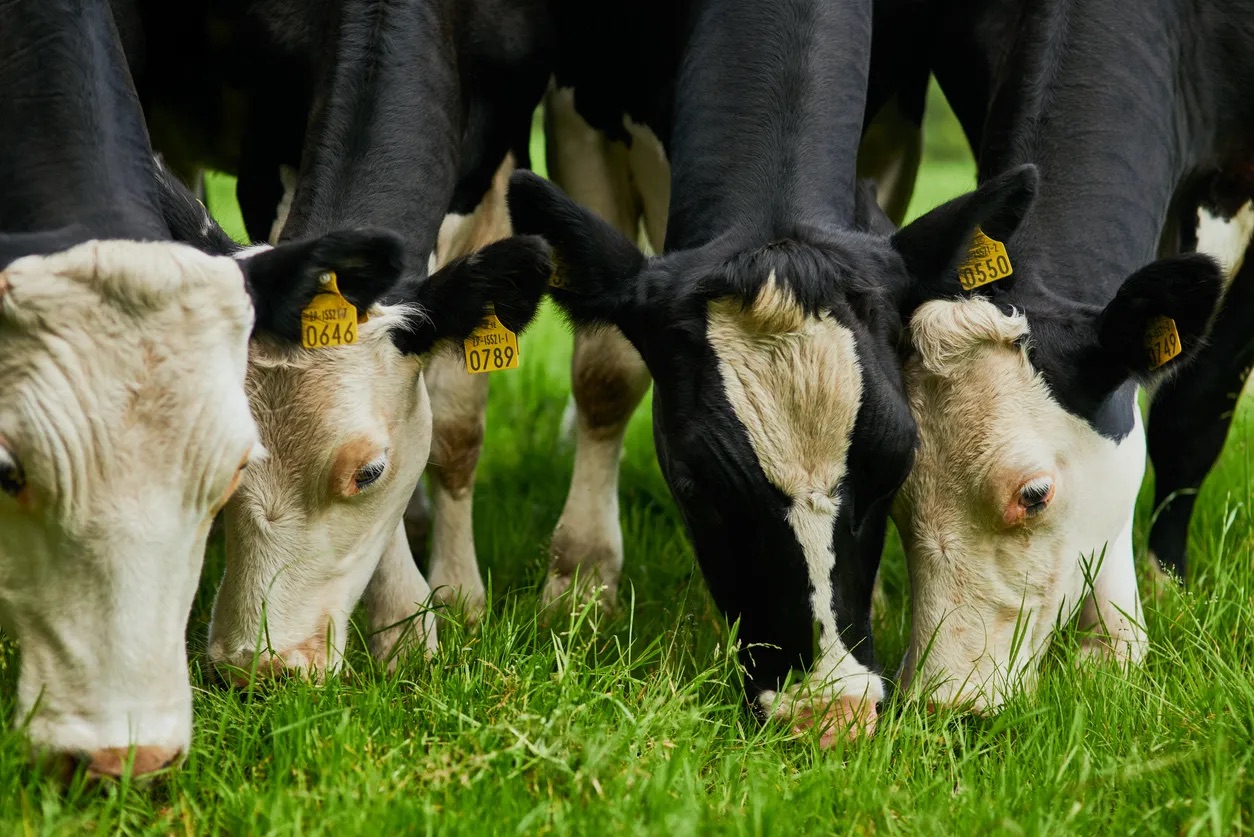Celebrity chef John Mountain made headlines last week for banning vegans from his restaurant, Fyre, citing “mental health reasons,” reportedly because a vegan customer complained about Fyre’s lack of plant-based menu options. Meanwhile, a vegan landlord in New York City forbids tenants from cooking meat in his $5,750-a-month apartments.
What’s the deal with vegans? Are they all self-obsessed, birdseed-eating eco-warriors who are only able to wash down “cheese” made of arrowroot with a massive dose of ego? Or are they disciplined, clean-living champions whose commitment to the cause merits our admiration and imitation?
Had you asked me my opinion of vegans a few years ago, I would have scoffed and made a soy boy joke. But the older, wiser me now concedes the vegetarians have a point, and the vegans, well, the vegans don’t eat butter, so let’s at least acknowledge their strong willpower.
Before examining the morality of various eating habits, let’s acknowledge that avoiding animal products does not inherently make you healthier. “Compared to the standard American diet of highly processed, low-fiber, high-calorie, sugary foods, vegan diets have some health advantages,” reports St. Luke’s Health System. “However, researchers found that avoiding all animal foods may lead to nutritional deficiencies in vitamin B12, omega-3, calcium, zinc, iron, magnesium and high-quality protein.”
To say that a vegan diet is healthier than the average American diet of deep-fried, genetically modified garbage isn’t saying much. Vegan food is packed full of much of the same sugars and seed oils wreaking havoc on omnivores, but without the benefits of a more well-balanced diet. And the health risks associated with a vegan diet are startling. According to St. Luke’s, veganism is associated with “increased risk for certain types of cancer, stroke, bone fractures, preterm birth and failure to thrive. Avoiding consumption of animal-sourced food may also be related to higher rates of depression and anxiety. Hair loss, weak bones, muscle wasting, skin rashes, hypothyroidism and anemia are other issues that have been observed in those strictly following a vegan diet.”
Still, sacrificing your own health and hotness is a small price to pay if you value animal life above your own or you truly believe you’re saving the world by doing your part to cut down on animal-related emissions. I get the ethical treatment of animals part. If what the National Humane Education Society reports of large-scale poultry farms, for instance, is true — “The birds are never given the chance to breathe fresh air or feel the sun on their beaks. They live in their own excrement, urine and vomit. Their beaks are sometimes cut off with a hot blade so that they won’t peck each other. Toes may also be removed” — it’s no wonder a growing number of Americans are going vegan and vegetarian.
There’s no denying, though, that vegans are a galling bunch and that Chef John Mountain’s ban resonated with millions of people who roll their eyes when a friend of a friend professes “dietary restrictions” at a summer barbecue. The vexation results in the fact that often, the restrictions are self-imposed (as opposed to the result of an allergy or sensitivity, with meat allergies being very rare). Rather than just show up and quietly nibble a handful of miniature carrots from the vegetable platter, the host must go out of his way for the vegan, procuring expensive and hard-to-find ingredients to craft a crispy barbecue tofu sandwich.
Which brings us to another irksome thing about vegans. “Preventing the exploitation of animals” is “the key factor” people become vegan, according to the Vegan Society. All well and good… until you fantasize about eating animals anyway with “shockingly good chicken nugget alternatives, flavorful faux deli meats and juicy vegan burgers,” as Tasting Table puts it in its list of “twenty plant-based meat brands every vegetarian should know about.” If the concept of eating animals is so repugnant to you, why go to such great lengths to make the non-animal food you’re eating mimic — in texture and looks! — a bloody hunk of ground beef?
Now we come to the real reason people like Chef Mountain (and me) are turned off by vegans: they’re notoriously smug and obnoxious about being vegan. A popular meme involves some variation of, “How can you tell if someone is a vegan? Don’t worry, they’ll tell you.” (Although my favorite one features the famous picture of shirtless Brad Pitt in Fight Club with the caption, “First rule of vegan club, tell everyone about vegan club.”)
For vegans, abstaining from animal products becomes a substitute for religion, which is not surprising, as adhering to the extreme diet requires a level of devotion to rival that of the most devout Hasidic Jew. Yet rather than worship at the Dairy Alternatives aisle peaceably, they do things that result in a chef having a mental health crisis and cause headlines like this to exist: “Parent takes vegan daughter to a restaurant, waitress reveals her ‘vegan’ dish had butter in it, leaving the parent livid.”
I get it, vegans. Not being able to eat earthy brie and real ice cream and a medium-rare New York strip would make me insane, too. But it doesn’t have to be this way. My sister-in-law is vegan, and when she comes to visit, she either brings her own food or unassumingly prepares a separate meal for herself. Instead of demanding a restaurant prepare her a special plant-based meal when one isn’t offered on the menu, she — brace yourself — seeks out vegan restaurants. She’s also learned to bake sweets that are so good, I honestly don’t believe they’re vegan (cue Fabio).
For all you omnivores who, like me, are sympathetic to the vegan cause, but too fond of Cabot Creamery full-fat Greek yogurt to change your ways now, there is a happy medium. Happy, free-range chickens do exist, and though you’ll pay a bit more, you’ll also get a lot more bang for your buck in the form of “25 percent more vitamin E, 75 percent more beta carotene and up to twenty times more Omega-3 fatty acids.” Happy, really free-range cows also exist; I know them personally. And not only do they lead a leisurely life in stunning terrain, they also taste delicious.



